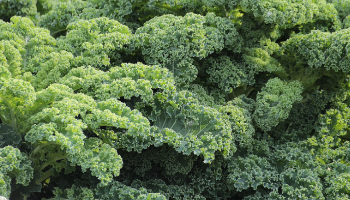Since March is Women’s History Month and National Nutrition Month, let’s learn about women’s nutrition. The differing nutritional needs for women were largely ignored for most of history. Nutrition was studied from the male lens, using male subjects. Overall, nutritional needs for women and men are roughly the same. However, there are some notable differences between the sexes. Those who are biologically female have nutritional needs that change depending on age, hormones, lifestyle and reproductive stage. Here are three key nutrients that women need throughout their life for optimal health.
Iron
A woman loses about ¼ cup of blood during their menstrual period. This leads to a loss in iron, and if it’s not replaced, it could lead to iron deficiency and anemia. Iron deficiency shows up in the body as weakness, irritability, fatigue, loss of concentration, and more.
The recommended iron intake for women aged 19 to 50 is 18 milligrams per day, compared to men’s 8 milligrams per day. Foods high in iron include leafy greens, beans, nuts and fortified cereals. Try to eat foods high in vitamin C along with iron-rich foods to aid the absorption of nutrients.
Calcium
Calcium is vital for keeping bones strong. Teenage girls need 1300 milligrams of calcium per day, adult women need 1000 milligrams per day, and women over age 51 need 1200 milligrams per day. Calcium deficiency can cause the body to take calcium from the bones, which leads to bone loss and a higher risk of osteoporosis.
Calcium has many functions in a woman’s body. During child-bearing years, calcium could help ease symptoms of premenstrual syndrome (PMS) like fluid retention and mood regulation. As women age, the amount of bone mass they have decreases. Therefore, a higher calcium intake is so important to keeping bones healthy. Vitamin D intake also needs to increase as it aids with the absorption of calcium into the body. Foods high in calcium include low-fat dairy products, leafy greens, seafood and tofu.
Folate
Folate, or folic acid, is a vital nutrient as it helps the body make new cells. It’s an especially important nutrient for women who are hoping to become pregnant or are pregnant. This is because folate aids in neural tube development, which is what will become the baby’s spinal cord and brain. Too little folate during pregnancy could lead to serious defects in the baby’s nervous system.
The recommended daily amount of folate for teenage girls or non-pregnant women is 400 micrograms, 600 micrograms for pregnant women and 500 micrograms while breastfeeding. Natural folate can be found in beans, citrus fruits, dark green leafy vegetables and nuts. It can also be found in fortified cereals, but check the nutrition facts label to be sure.
It’s always important to talk with your doctor about your specific nutritional needs. How will you be sure you’re getting enough nutrients to power your body?


